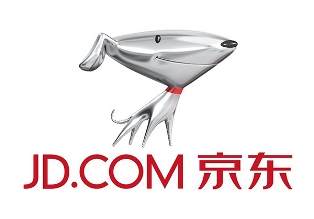JD.com Inc. (Nasdaq: JD) stock was up as much as 20% from its offer price on its first day of trading today (Thursday). Shares of JD reached a high of $22.80 shortly after 11:00 a.m.

The stock jumped in early trading after the company priced its shares at $19 each and raised nearly $1.8 billion. That was above the company's projected range of $16 to $18 per share.
CNBC also reported today that shares of JD stock were approximately 15 times oversubscribed, meaning 15 times as many people wanted JD shares as were made available.
JD.com is the largest online direct-sales business in China. The company operates similarly to Amazon.com Inc. (Nasdaq: AMZN). It buys products from manufacturers, stores them in warehouses, and sells them through its website.
In 2013, JD reported revenue of $11.5 billion, but actually posted a net loss of $8 million. While the net income figure is uninspiring, revenue has continued to soar. Revenue growth in 2013 was 68%, and in 2012 that figure was 96%.
By raising nearly $1.8 billion today, the JD.com IPO is the biggest initial public offering from a tech company since Twitter Inc. (NYSE: TWTR) raised $2.1 billion last November.
The JD IPO also comes during a time when the tech IPO market had slowed down. According to Dealogic, three of the last six U.S. tech IPOs had priced below their projected range.
The recent market performance of the tech sector sheds light on JD stock's impressive first day. The Nasdaq composite has dropped 3% since the beginning of March. The stocks of similar online retailers have also dropped lately, with Amazon down 23% year to date and eBay Inc. (Nasdaq: EBAY) down 7% this year.
While JD.com ran out of the gates on its IPO day, its success today and its continued success has been closely tied to its biggest competitor, Alibaba Group Holding Ltd...
How JD Stock Is an Alibaba Preview
For many, the JD.com IPO was seen as a "warm-up" to the 2014 Alibaba IPO, which many project will be the largest IPO in U.S. history.
Both are Chinese e-commerce companies, but the difference between their financials is stark.
JD has incredibly high revenue at $11.5 billion, but is still losing money. In Alibaba's prospectus (filed May 5), the company reported revenue of $6.5 billion through the first nine months of the current fiscal year, and a profit of $3.2 billion.
Alibaba may bring in less revenue, but an operating margin near 50% looks more attractive. Also, while JD.com's revenue grew 68% ion 2013, a 28% drop in revenue growth from 2012 may worry some. Admittedly, revenue growth near 100% is tough to sustain, but any negative trends bear watching.
Additionally, while JD.com raised an impressive $1.8 billion today, Alibaba has been projected to raise as much as $20.16 billion when it hits the market as early as August. The JD.com IPO may be the biggest tech IPO since November, but the Alibaba IPO may be the biggest U.S. IPO of all time.
"Of course, trading in JD is interesting not just in itself, but also, perhaps, as an indicator of what to expect when its larger cousin, Alibaba Group Holding, comes public later this year," Barron's Tiernan Ray wrote today.
Part of the allure of the JD.com stems from the huge revenue the company generates in the world's second largest e-commerce market, but there's no denying that the Alibaba IPO has heightened investors' awareness of similar Chinese companies.
Some of today's initial pop can likely be attributed to investors jumping into that market before the much larger Alibaba starts trading.
More than anything, the success of the JD IPO is a good sign for the stronger and larger Alibaba IPO.
"The JD.com IPO is somewhat of a preview for Alibaba, though Alibaba appears to be more respected and powerful within the Chinese ecommerce market," Wedbush Analyst Gil Luria told MarketWatch. "I believe the JD.Com valuation at the end of the day will be a proxy for the minimal valuation for Alibaba when it goes public. Safe to say that a successful JD.com IPO would indicate a positive sentiment towards Chinese e-commerce which would be good news for Alibaba."
Do you plan on investing in JD stock following today's IPO? Share your thoughts on Twitter @moneymorning using #JD or $JD.
Our newest research has led us to a way for you to make a fortune on the Alibaba deal right now... long before the shares go public. Your gains, in fact, could exceed those of the IPO's original investors. It could be your one and only chance to make the kinds of gains normally reserved for the high-net-worth investors and bankers. You can learn more about this Alibaba profit play here.
Related Articles:
- The Wall Street Journal: JD.com Starts Trading on Nasdaq
- CNBC: Oversubscribed JD.com Prices Its IPO at $19 a Share
- MarketWatch: JD.com IPO to Point to 'Minimal Valuation' for Alibaba, Says Analyst
- Barron's: This Morning: JD Cometh, NetApp Rising, Flextronics's New Vistas


